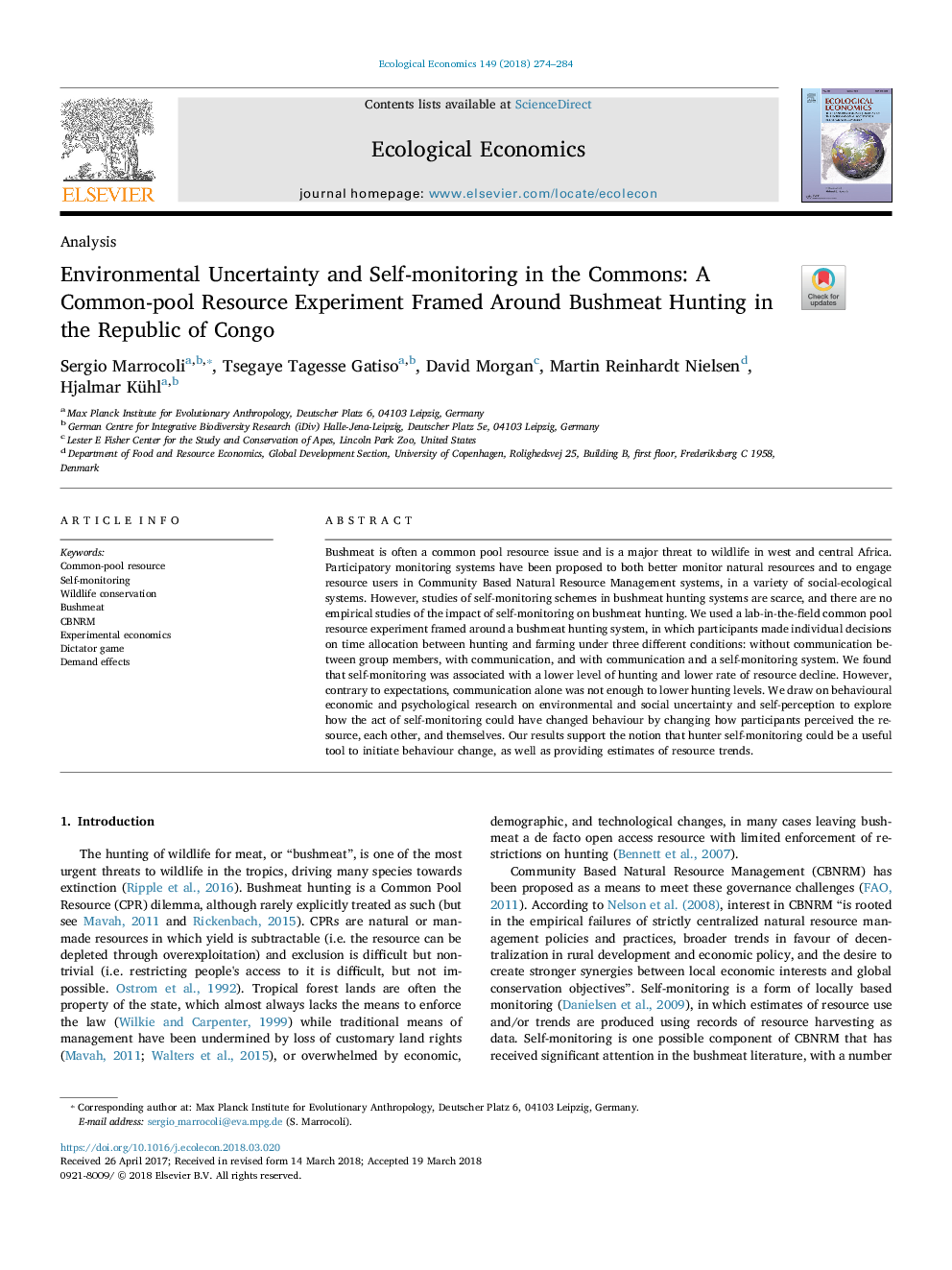ترجمه فارسی عنوان مقاله
عدم اطمینان محیطی و نظارت بر خود در رایانه ها: آزمایش منابع مشترک با شکار بوشمیت در جمهوری کنگو
عنوان انگلیسی
Environmental Uncertainty and Self-monitoring in the Commons: A Common-pool Resource Experiment Framed Around Bushmeat Hunting in the Republic of Congo
| کد مقاله | سال انتشار | تعداد صفحات مقاله انگلیسی |
|---|---|---|
| 95291 | 2018 | 11 صفحه PDF |
منبع

Publisher : Elsevier - Science Direct (الزویر - ساینس دایرکت)
Journal : Ecological Economics, Volume 149, July 2018, Pages 274-284

